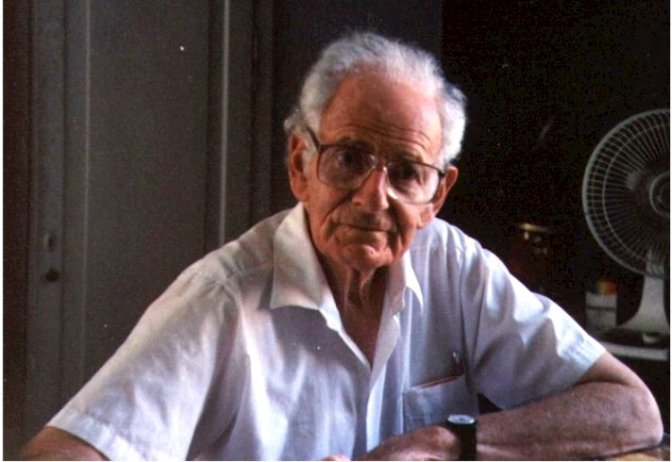Home > Oasis of Peace > Community > Founder - Bruno Hussar > Bruno
Bruno
Wednesday 21 May 2008, by

The following words were read to Rev. Nichiko Niwano and a delegation from the Rissho Kosei-Kai Organization who came to pay their respects at the grave of Fr. Bruno.
Reverend Niwano and distinguished guests,
There are communities and religious groups with spiritual leaders. Leaders who guide their followers with words of wisdom and who are turned to for advice in times of trouble. Often we meet people who believe that Father Bruno Hussar was such a leader for us. But the truth is, that for us in NS/WAS, he was never "Father" Bruno Hussar. He was always Bruno, a friend, and the founder of our village. His death was a personal loss for each and every one of us.
One evening, several weeks ago, many of us gathered to share our memories of Bruno. Nobody spoke of Bruno’s teaching, and few of us actually quoted things that Bruno said. For we saw that it was not what he said, but who he was, that provided us with inspiration. During times that many of us lost our energy to deal with NS/WAS and the Jewish - Palestinian conflict, Bruno always maintained his optimism and his patience. There was no distance between Bruno’s words and his actions. And it was the way in which he put his beliefs into practice that enabled him to find a common language with people from such different backgrounds and generations.
Once a journalist asked Bruno how he, a man of religion, can continue to invest so much energy in a community that is fundamentally secular. Bruno simply answered that, in his eyes, those of us who consider ourselves secular are also doing the work of God, even if we do not know it. As I think again about Bruno’s response to this journalist I come to a different understanding of how he perceived NS/WAS. We often speak of Bruno’s original intention to bring together people of different faiths who would find a common language by stressing the common spiritual values between them. Then we go on to say that the Jews and Palestinians who arrived were more interested in addressing their problems as two peoples, rather than as three religions. We present this as a turning point, or a change in direction.
But now it strikes me that for Bruno there never was a change of direction, but rather a realization of his original dream. The struggle for peace is in itself the spiritual value shared by people of all religions and by people without religion. His dream was to create a village in which we could learn how to put these values into practice. And I now think that perhaps we have not yet begun to recognize how much of a spiritual leader - or a "Father" - Bruno really was to us. May he rest in peace.
Bob Mark